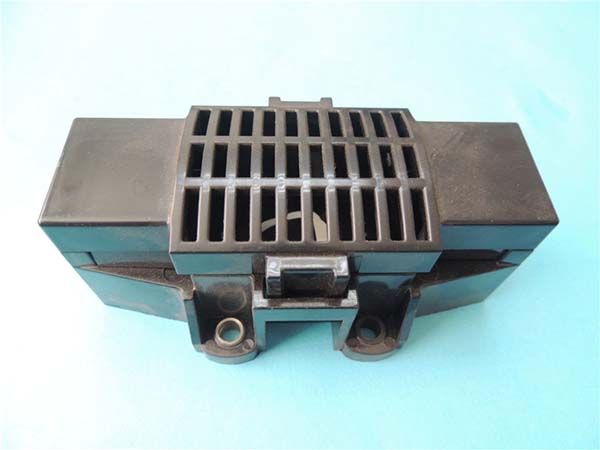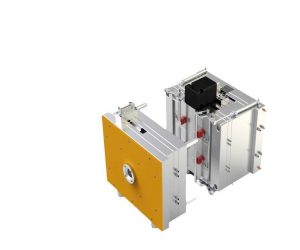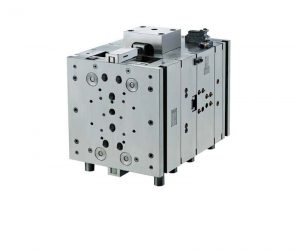Understanding the Significance of Prototyping
In the dynamic world of product development, prototyping stands as a cornerstone. Whether you're an inventor with a groundbreaking concept, a startup aiming to disrupt the market, or an established company looking to innovate, the role of prototypes cannot be overstated.
Prototypes serve as the tangible manifestation of your ideas. They allow you to test and validate concepts before committing significant resources to full - scale production. By creating a prototype, you can identify design flaws, improve functionality, and gather valuable feedback from potential users. This not only helps in refining your product but also significantly reduces the risk of costly mistakes during the production phase.
For instance, a study by McKinsey found that companies that actively engage in prototyping and iterative design processes are 50% more likely to bring products to market that meet or exceed customer expectations. This clearly demonstrates the importance of choosing the right companies that create prototypes, as they can be the difference between a product's success and failure.
Key Considerations When Selecting Prototype - Creating Companies
Industry Experience and Familiarity
When searching for Yigu Technology companies that create prototypes, one of the first aspects to evaluate is their industry experience. A company with a deep understanding of your specific industry will have invaluable insights. They will be familiar with the materials commonly used, the regulatory requirements, and the latest trends.
For example, if you're in the medical device industry, you need a prototype company that understands the strict FDA regulations regarding materials, sterilization, and biocompatibility. A company that has previously worked on medical prototypes will be better equipped to guide you through the process, ensuring that your prototype meets all the necessary standards.
Companies with diverse industry experience, such as those that have worked on projects in automotive, aerospace, and consumer electronics, can bring a wealth of knowledge and innovative thinking to your project. They can apply best practices from different sectors to your specific prototype needs.
Services Offered
The range of services provided by prototype - creating companies is another crucial factor. Different types of prototypes may require different manufacturing techniques. Here's a breakdown of common services and their applications:
| Service | Description | Ideal for |
| Impression 3D | Creates a three - dimensional object by layering materials based on a digital model. | Rapidly creating concept models, small - scale production runs, and parts with complex geometries. |
| Usinage CNC | Uses computer - controlled machines to precisely cut and shape materials. | Prototypes that require high - precision parts, especially in metals and plastics. |
| Moulage par injection | Involves injecting molten material into a mold cavity to create parts. | High - volume prototype production of plastic parts with consistent quality. |
| Sheet Metal Fabrication | Shaping and joining sheet metal to create components. | Prototypes for enclosures, brackets, and parts in industries like automotive and electronics. |
A Yigu Technology company that offers a comprehensive suite of services, from initial design to final prototype assembly, can provide a seamless experience. This eliminates the need to coordinate with multiple vendors, reducing the chances of miscommunication and delays.
Quality Assurance
Quality is non - negotiable when it comes to prototypes. A poorly made prototype can lead to inaccurate testing results and misinformed decisions. Reputable companies that create prototypes have robust quality assurance processes in place.
They start by using high - quality materials that are suitable for the intended application. For Yigu Technology example, if your prototype is for a product that will be exposed to harsh environmental conditions, the company should use materials that can withstand such conditions.
During the manufacturing process, regular inspections are carried out. This may include dimensional checks, material integrity tests, and functionality tests. Once the prototype is complete, it undergoes a final, comprehensive quality check. Companies that are ISO - certified, for instance, adhere to international quality management standards, giving you added confidence in their processes.
Cost - Effectiveness
While cost should not be the sole determining factor, it is an important consideration. Different prototype - creating companies have different pricing models. Some may charge based on the complexity of the design, while others may base their fees on the materials used and the manufacturing processes involved.
It's essential to get detailed quotes from multiple companies. When comparing costs, look beyond the initial price tag. Consider factors such as the company's reputation for quality, the likelihood of having to make costly revisions due to subpar work, and the potential for cost savings in the long run. For example, a slightly more expensive prototype from a company with a proven track record of getting it right the first time may be more cost - effective than a cheaper one that requires numerous re - works.
Turnaround Time
Time is often of the essence in product development. The faster you can get a prototype in hand, the quicker you can start testing and refining your product. Some prototype - creating companies specialize in rapid prototyping, using advanced technologies to produce prototypes in a matter of days.
However, it's important to balance speed with quality. A company that promises an extremely short turnaround time may cut corners on quality. Look for a company that can provide a reasonable estimate of the time required to complete your prototype while still maintaining high - quality standards. This may depend on factors such as the complexity of the design, the availability of materials, and the current workload of the company.
Customer Reviews and Testimonials
The experiences of past clients can provide valuable insights into the capabilities of a prototype - creating company. Look for online reviews on platforms such as Google, Yelp, or industry - specific review sites. Pay attention to both positive and negative reviews.
Positive reviews can highlight the company's strengths, such as their creativity, attention to detail, and excellent customer service. Negative reviews, on the other hand, can alert you to potential issues, such as missed deadlines, poor communication, or substandard quality. Additionally, testimonials on the company's website can give you a sense of the types of projects they have successfully completed and the satisfaction of their clients.
Making the Final Decision
Weighing the Pros and Cons
After gathering all the necessary information about potential prototype - creating companies, create a comparison chart. List the companies along with the key factors you've considered, such as their services, industry experience, quality assurance measures, cost, turnaround time, and customer reviews.
For each factor, rate the companies on a scale or simply note the pros and cons. This visual representation will make it easier to compare and contrast the companies and identify the one that best meets your needs.
Considering Long - Term Collaboration
If you anticipate the need for multiple prototypes or future product development work, consider the potential for long - term collaboration. A company that has a good understanding of your brand, your products, and your development process can be a valuable partner.
Long - term relationships can lead to better communication, more efficient processes, and potentially more favorable pricing. When evaluating companies, ask about their willingness and ability to support your future projects.
Taking the Plunge
Once you've made your decision, it's time to take the next step. Contact the Yigu Technology company to discuss your project in more detail. Sign a clear and comprehensive contract that outlines the scope of work, the deliverables, the timeline, the cost, and any other important terms.
Stay involved in the prototype development process. Maintain regular communication with the company, ask for updates, and provide feedback. By working closely with the prototype - creating company, you can ensure that your vision is translated into a high - quality prototype that sets your product on the path to success.
In conclusion, choosing the right companies that create prototypes is a critical decision in the product development journey. By carefully considering the factors outlined in this article, conducting thorough research, and making an informed decision, you can find a partner that will help you bring your ideas to life and turn your product concept into a market - ready reality.



